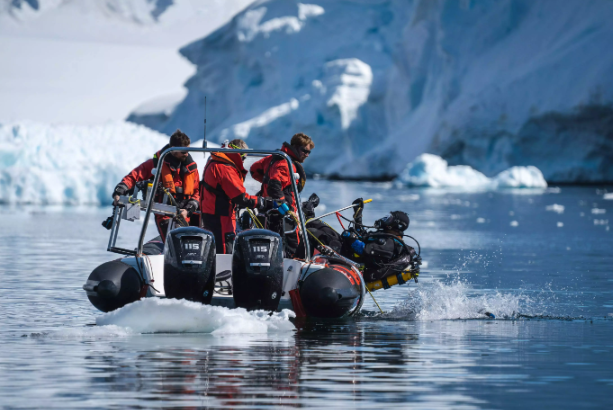Enhanced Oceanographic Research Needed to Address Ocean Crises (GS Paper 3, Environment)

Introduction
- The UNESCO State of Ocean Report 2024 underscores the urgent need for intensified oceanographic research and data collection to tackle the escalating crises facing our oceans.
- From warming and acidification to deoxygenation and rising sea levels, these challenges demand immediate attention and comprehensive solutions.
Key Findings of the State of Ocean Report 2024
- The report reveals critical gaps in data and research, particularly regarding the rapid warming of oceans.
- It emphasizes the necessity of ongoing data collection to monitor and mitigate the impacts of ocean warming on health and resilience.
- Worryingly, the upper layers of oceans have warmed significantly over the past few decades, with projections indicating persistent warming trends and irreversible changes in the long term.
Challenges and Research Needs
- Several challenges highlighted in the report underscore the urgency of enhanced research efforts.
- Ocean warming trends, earth energy imbalance, deoxygenation, ocean acidification, and rising sea levels pose significant threats to marine ecosystems and coastal communities.
- Furthermore, the emerging field of marine carbon dioxide removal (mCDR) presents both opportunities and challenges, necessitating further research to assess its feasibility and potential risks.
Effects of Global Warming on the Indian Ocean
- The Indian Ocean, in particular, is experiencing rapid warming, leading to more frequent cyclones, heatwaves, and marine heatwaves.
- The intensification of cyclones, such as Cyclone Fani in 2019, underscores the need for improved forecasting and disaster preparedness.
- Moreover, ocean warming affects monsoon patterns, cyclone characteristics, upwelling, marine biodiversity, and food security in regions dependent on the Indian Ocean.
Way Forward
- Addressing these ocean crises requires a multi-faceted approach involving real-time weather forecasting, geo-engineering solutions, sustainable coastal development, public awareness campaigns, and international collaboration.
- Investing in advanced technologies and fostering cooperation among nations are essential steps towards safeguarding our oceans for future generations.
Conclusion
- In conclusion, the UNESCO report serves as a clarion call for concerted action to protect and preserve our oceans.
- By prioritizing enhanced oceanographic research and adopting sustainable practices, we can mitigate the adverse effects of climate change and ensure the health and resilience of marine ecosystems worldwide.


